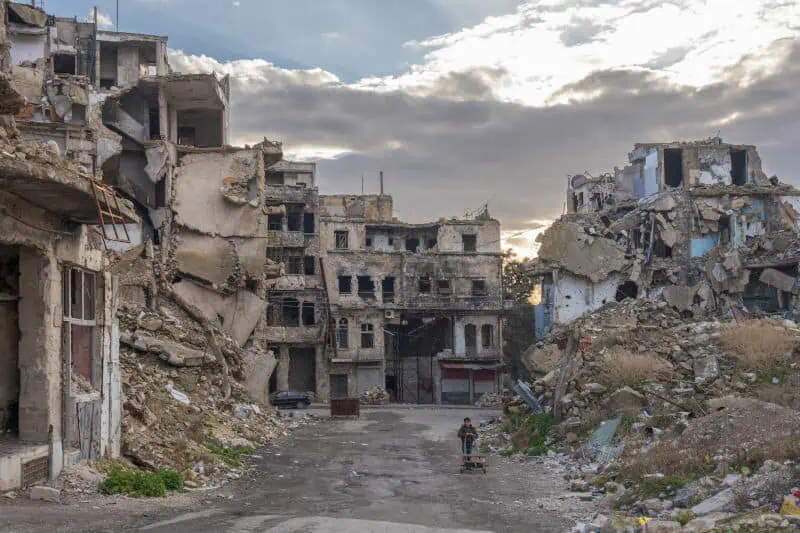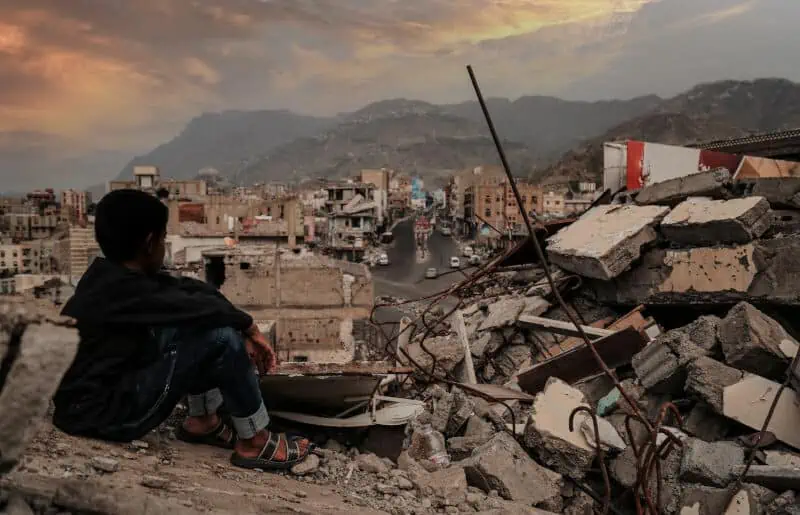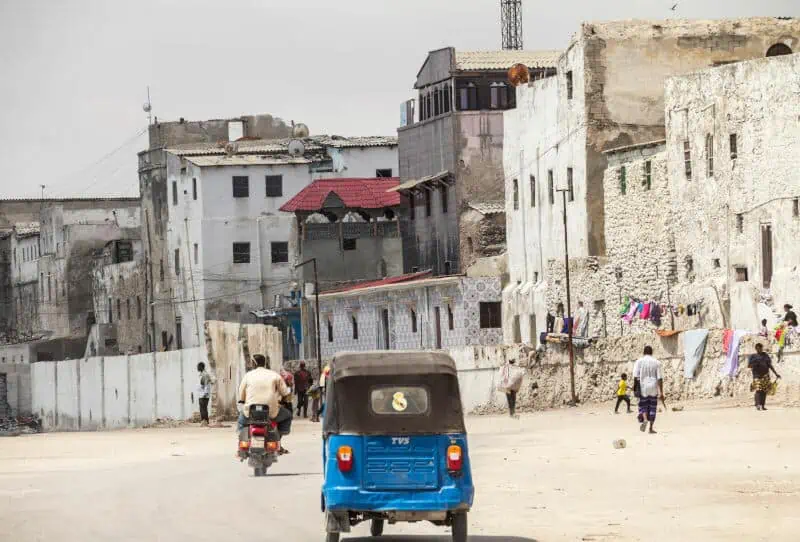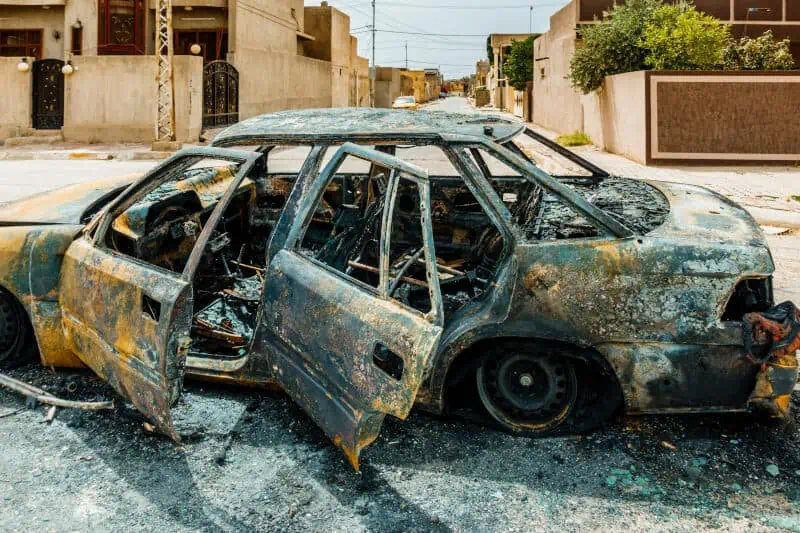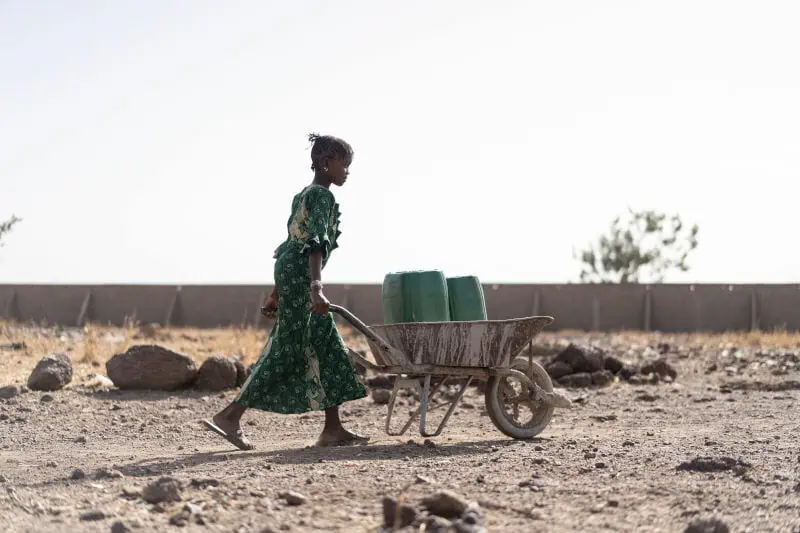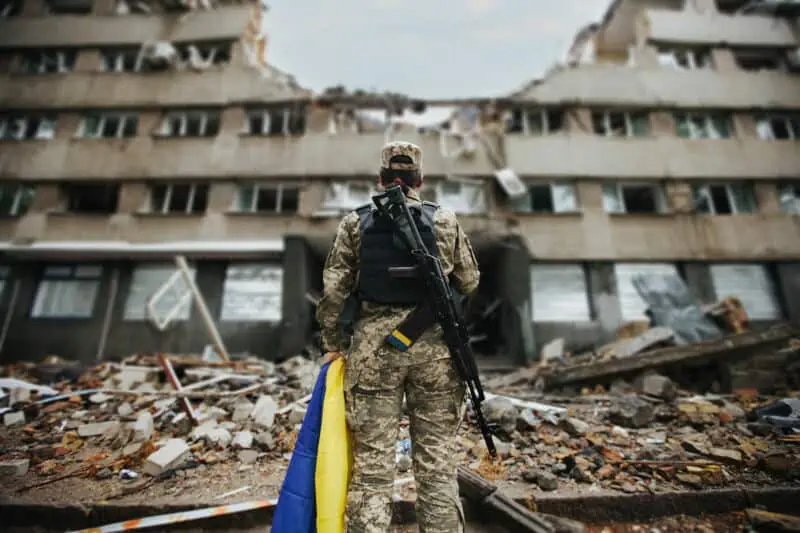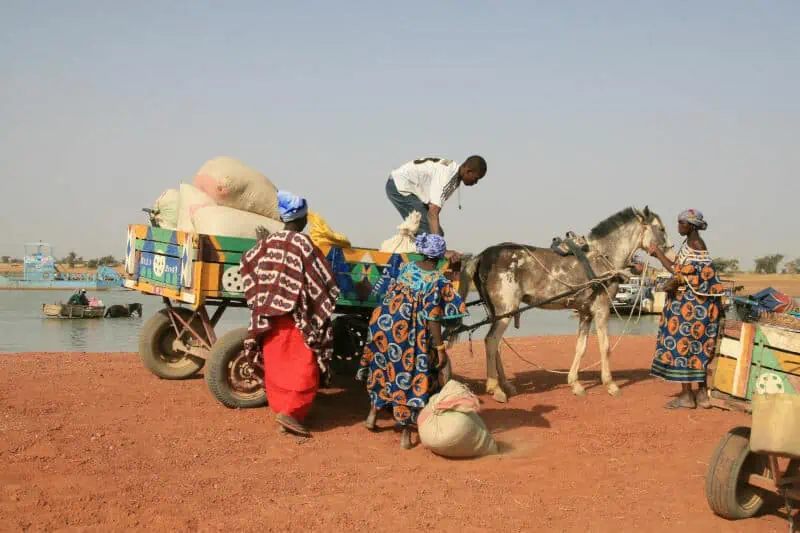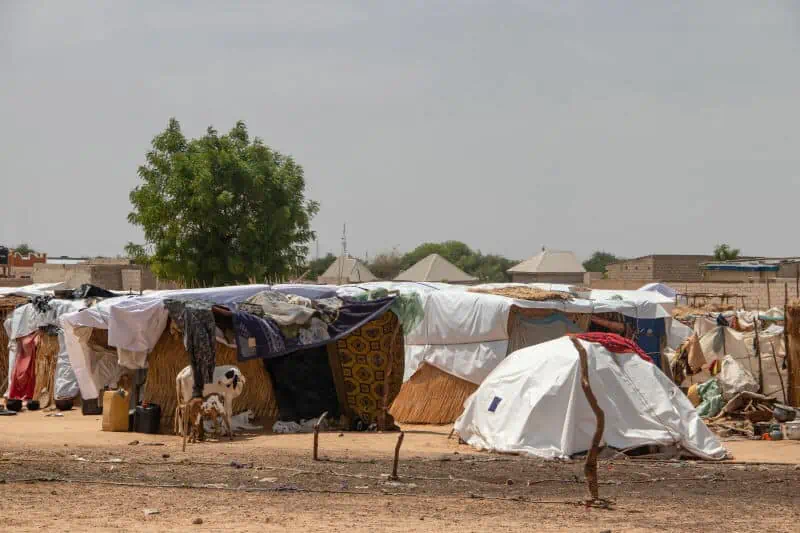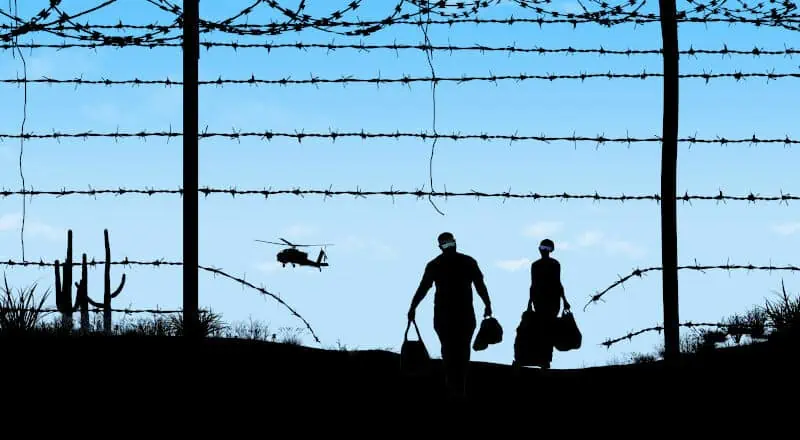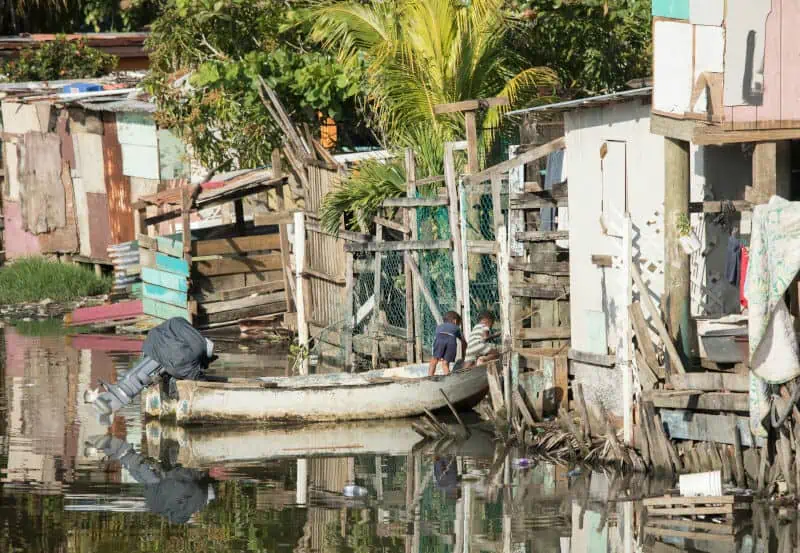Embarking on a journey around the world can be an exhilarating experience, filled with new cultures, breathtaking sights, and unforgettable adventures. However, not all destinations are created equal when it comes to safety. Certain countries pose significant risks to travelers due to factors like political instability, conflict, terrorism, and high crime rates.
In this overview, we’ll delve into some of the most dangerous countries in the world to travel to, highlighting the key risks and reasons why these destinations are considered perilous. It’s important to remember that safety should always be a top priority when planning your travels, and staying informed about the latest travel advisories and global situations is essential. Whether you’re a seasoned adventurer or a casual tourist, understanding the risks associated with these high-danger zones can help you make informed decisions about your travel itinerary.
1. Afghanistan
Afghanistan, a country known for its rich history and stunning landscapes, unfortunately, also headlines for less positive reasons. It’s a nation that has faced numerous challenges over the years, including recent natural disasters, ongoing terrorism, and high crime rates, making it one of the most dangerous countries for travelers.
Natural Disasters
- Earthquakes: Afghanistan is prone to severe earthquakes, with recent ones causing significant loss of life and destruction. For instance, a devastating earthquake in 2021 affected thousands of people.
- Harsh Climate: Apart from earthquakes, the country also faces extreme weather conditions, including harsh winters and flooding.
Terrorism and Extremist Groups
- Taliban and ISIS-K: The presence of Taliban and ISIS-Khorasan (ISIS-K) significantly heightens the risk of terrorism. These groups are responsible for numerous attacks on civilians and foreign nationals.
- Targeted Attacks: Foreigners, including tourists, journalists, and aid workers, are often targeted, leading to kidnappings and fatalities.
Crime Rates and Murders
- High Crime Rates: Afghanistan faces a high rate of violent crime, including armed robbery, assault, and murder.
- Kidnapping Risk: There’s also a significant threat of kidnapping, both for ransom and political purposes.
Other Considerations
- Limited Government Control: The Afghan government’s control is limited in many areas, reducing the effectiveness of law enforcement and emergency services.
- Lack of Medical Facilities: In case of injury, access to medical care is severely limited, especially in rural areas.
Travel Advice
Given these risks, most governments advise against all but essential travel to Afghanistan. The situation remains volatile and unpredictable, with a high risk of terrorism and criminal activity, making Afghanistan one of the most dangerous countries in the world. It’s crucial for travelers who still choose to visit to stay updated with their respective embassy’s advice and have a solid security plan in place.
For current travel advisories and detailed statistics regarding the situation in Afghanistan, you can visit:
- U.S. Department of State – Afghanistan Travel Advisory
- United Nations Office for the Coordination of Humanitarian Affairs (OCHA) – Afghanistan
- Global Conflict Tracker by the Council on Foreign Relations
- World Bank Data on Afghanistan
2. Syria
Syria, once a vibrant cultural hub in the Middle East, has become one of the most perilous destinations for travelers due to the ongoing civil war and various other risks. This section explores the key dangers associated with traveling to Syria, underlining why it is considered one of the most dangerous countries in the world.
Civil War and Political Instability
- Ongoing Conflict: Since 2011, Syria has been embroiled in a civil war that has led to widespread devastation and humanitarian crises.
- Unpredictable Environment: The conflict has fragmented the country, with various factions controlling different regions, making the situation extremely volatile and unpredictable.
Terrorism and Extremist Groups
- ISIS and Other Militant Groups: While ISIS has lost much of its territory in Syria, the threat of terrorism remains high. Various other extremist groups also operate within the country.
- High Risk of Violence: These groups frequently engage in violent attacks, which often target civilians and can occur without warning.
Crime Rates and Safety Concerns
- Increased Crime: The war has led to a breakdown in law and order, resulting in increased rates of crime, including kidnapping, robbery, and murder.
- Safety of Travelers: Foreigners, particularly Westerners, face a high risk of kidnapping and other forms of violence.
Other Risks
- Lack of Infrastructure: The war has severely damaged Syria’s infrastructure, leading to a lack of basic services like healthcare and clean water, especially in conflict zones.
- Restricted Access: Many governments have limited or no ability to provide consular services to their citizens in Syria.
Travel Advice
Due to the extreme risks, travel to Syria is strongly discouraged. Those who must travel should be aware of the lack of reliable security and emergency services. Constant vigilance and a comprehensive understanding of the current political and security situation are essential.
For the latest travel advisories and more detailed information about the risks in Syria, you can refer to:
- U.S. Department of State – Syria Travel Advisory
- UK Foreign, Commonwealth & Development Office – Syria
- Syrian Civil War Map
- World Bank Data on Syria
3. Yemen
Yemen, known for its rich history and unique cultural heritage, faces ongoing conflict and numerous other challenges that place it among the most dangerous countries for travel. The country’s complex situation involves civil war, terrorist activities, and humanitarian crises, posing severe risks for anyone considering travel to this region.
Civil War and Political Instability
- Ongoing Conflict: Yemen has been in the throes of a civil war since 2015, involving multiple factions and resulting in widespread destruction and instability.
- Fragmented Control: The country is divided among various groups, including the Houthi rebels and the internationally recognized government, leading to unpredictable and volatile conditions.
Terrorism and Extremist Groups
- Al-Qaeda and ISIS Presence: Terrorist organizations, including Al-Qaeda in the Arabian Peninsula (AQAP) and ISIS, have a significant presence in Yemen.
- Frequent Attacks: These groups carry out terrorist attacks, often targeting civilians, government officials, and security forces.
Crime Rates and Safety Concerns
- Increased Crime Rates: The breakdown of law and order has led to a rise in crime, including armed robbery, kidnapping for ransom, and violent assaults.
- Risk to Foreigners: Foreign nationals, including aid workers and journalists, are particularly at risk of kidnapping and other violent crimes.
Other Risks
- Limited Basic Services: Ongoing conflict has severely impacted Yemen’s infrastructure, leading to a lack of essential services like healthcare, clean water, and reliable electricity.
- Humanitarian Crisis: Yemen faces one of the world’s worst humanitarian crises, with widespread famine, disease outbreaks, and a lack of medical supplies.
Travel Advice
Given these considerable risks, travel to Yemen is strongly advised against. The security situation is highly unpredictable, and the ability of foreign governments to provide consular assistance is extremely limited.
For current travel advisories and more detailed information on the situation in Yemen, refer to:
- U.S. Department of State – Yemen Travel Advisory
- United Nations Office for the Coordination of Humanitarian Affairs (OCHA) – Yemen
- Armed Conflict Location & Event Data Project (ACLED)
- World Bank Data on Yemen
4. Somalia
Somalia, a country with a rich cultural heritage and a strategic location in the Horn of Africa, unfortunately, is often in the news for its prolonged instability and security challenges. The combination of piracy, terrorism, and political turmoil makes it one of the most dangerous countries for travelers.
Ongoing Conflict and Political Instability
- Civil War: Somalia has been grappling with a civil war since the early 1990s, which has led to a breakdown of national governance and law enforcement.
- Fragmented Authority: The country is divided into territories controlled by various factions, including the Federal Government of Somalia and autonomous regions like Somaliland and Puntland.
Piracy and Maritime Risks
- Piracy: Somalia’s waters are infamous for piracy, posing serious threats to maritime security. Although incidents have decreased, the risk remains, especially in the Gulf of Aden and the Indian Ocean.
- Maritime Warnings: International authorities often issue warnings to vessels traveling near the Somali coast due to the piracy threat.
Terrorism and Extremist Groups
- Al-Shabaab: This Al-Qaeda-affiliated terrorist group controls large parts of rural Somalia and frequently conducts bombings, assassinations, and attacks against government and civilian targets.
- High Risk of Terrorism: The group targets public spaces like hotels, restaurants, and shopping areas, posing a direct threat to locals and foreigners alike.
Crime Rates and Safety Concerns
- Lawlessness: Due to the lack of effective governance, crime rates are high, including armed robbery, kidnapping, and violent assaults.
- Safety of Foreigners: Foreigners, including aid workers and journalists, are at a particularly high risk of kidnapping and other forms of violence.
Other Risks
- Limited Infrastructure and Services: The ongoing conflict has severely affected Somalia’s infrastructure, leading to a lack of healthcare, clean water, and other basic services.
- Humanitarian Crisis: Somalia faces a humanitarian crisis, with large segments of the population in need of food aid and medical assistance.
Travel Advice
Travel to Somalia is strongly discouraged due to the extreme risks. The security situation is highly unpredictable, and the capacity of foreign governments to provide assistance to their citizens is severely limited, making Somalia one of the most dangerous countries in the world.
For the latest travel advisories and more detailed information about the risks in Somalia, refer to:
- U.S. Department of State – Somalia Travel Advisory
- United Nations Office for the Coordination of Humanitarian Affairs (OCHA) – Somalia
- Somalia Report by the Armed Conflict Location & Event Data Project (ACLED)
- World Bank Data on Somalia
5. Iraq
Iraq, a country with a rich historical legacy and home to some of the world’s oldest civilizations, has in recent years become synonymous with conflict and instability. The ongoing security challenges, including terrorism, sectarian violence, and political instability, place Iraq among the most dangerous countries for travel.
Post-War Instability and Political Challenges
- Conflict Aftermath: Following years of war and the fall of Saddam Hussein’s regime, Iraq has struggled with political instability and sectarian conflict.
- Government Control: The Iraqi government’s control varies across the country, with some areas experiencing frequent violence and lawlessness.
Terrorism and Extremist Groups
- ISIS and Other Militant Groups: While ISIS has lost much of its territory in Iraq, the threat of insurgency remains. Other militant groups also operate in the country.
- Frequent Terrorist Attacks: These groups carry out attacks in public areas, including markets, restaurants, and mosques, posing significant risks to civilians and foreigners.
Crime Rates and Safety Concerns
- High Crime Rates: Iraq faces a high rate of crime, including kidnapping, armed robbery, and sectarian violence.
- Risks for Foreigners: Foreign nationals, including journalists and aid workers, are at high risk of targeted kidnappings and attacks.
Other Risks
- Limited Infrastructure and Services: Ongoing conflict and economic challenges have impacted Iraq’s infrastructure, leading to limited access to healthcare and other essential services.
- Landmines and Unexploded Ordnance: Certain areas, particularly those that were battlegrounds, are contaminated with landmines and unexploded ordnance, posing additional risks.
Travel Advice
Due to these risks, travel to Iraq is strongly advised against, especially to areas where conflict is ongoing. The security situation remains unpredictable, and the capacity for emergency response is limited.
For the latest travel advisories and more detailed information on the situation in Iraq, refer to:
- U.S. Department of State – Iraq Travel Advisory
- UK Foreign, Commonwealth & Development Office – Iraq
- Iraq Body Count
- World Bank Data on Iraq
6. Libya
Libya, a country with an ancient history and Mediterranean coastline, has been facing significant challenges in recent years. The aftermath of the 2011 uprising and the ensuing civil conflict have plunged the nation into instability, making it one of the most dangerous destinations for travelers.

Ongoing Civil Conflict and Political Turmoil
- Post-Revolution Instability: Since the fall of Muammar Gaddafi’s regime in 2011, Libya has struggled with political turmoil and armed conflict among various factions.
- Divided Governance: The country is split between different governing bodies, leading to a complex and often volatile political landscape.
Terrorism and Militant Groups
- Presence of Militant Groups: Various extremist and militant groups, including factions linked to ISIS and Al-Qaeda, operate in Libya.
- Risk of Terrorist Attacks: These groups have been responsible for numerous terrorist attacks, targeting both local and foreign interests.
High Crime Rates and Safety Issues
- Increased Crime: The lack of effective law enforcement has resulted in a surge in crime, including armed robbery, carjacking, and violent assaults.
- Kidnapping Risks: There is a high risk of kidnapping for ransom or political leverage, particularly targeting foreigners.
Other Dangers
- Damaged Infrastructure: Years of conflict have severely damaged the country’s infrastructure, leading to inadequate healthcare facilities and basic services.
- Landmines and Unexploded Ordnance: Some areas are contaminated with landmines and unexploded ordnance from recent and past conflicts, adding to the dangers.
Travel Advice
Travel to Libya is highly discouraged due to the extreme risks. The security situation is unpredictable, and the ability of foreign governments to provide consular assistance in Libya is severely limited, making Libya an extremely dangerous place to travel to.
For current travel advisories and more detailed information on Libya, you can refer to:
- U.S. Department of State – Libya Travel Advisory
- UK Foreign, Commonwealth & Development Office – Libya
- Libya Crisis Tracker by the Armed Conflict Location & Event Data Project (ACLED)
- World Bank Data on Libya
7. South Sudan
South Sudan, the world’s youngest nation, gained independence in 2011 but has since been mired in conflict and instability. Despite its rich cultural diversity and potential, the ongoing ethnic clashes, political instability, and humanitarian crises make it one of the most hazardous destinations for travelers.
Ethnic Conflict and Political Instability
- Civil War: South Sudan has been embroiled in a civil war since 2013, which has led to widespread violence and displacement of millions.
- Fragmented Political Landscape: The country faces continual political turmoil with various factions and armed groups vying for power, leading to an unstable and unpredictable environment.
Humanitarian Crisis
- Severe Food Shortages: The conflict has caused one of the world’s worst humanitarian crises, with millions in need of food aid and access to clean water.
- Limited Healthcare: The healthcare system is extremely under-resourced, and access to medical care is often non-existent, especially in conflict zones.
Security Concerns and Crime
- High Crime Rates: South Sudan experiences a high rate of crime, including armed robbery, assaults, and kidnappings.
- Targeting of Foreigners: Foreign nationals, including aid workers and journalists, are at significant risk of violence and kidnapping.
Other Risks
- Lack of Infrastructure: The ongoing conflict has severely impacted the country’s infrastructure, making travel within South Sudan challenging and dangerous.
- Landmines: Landmines and unexploded ordnance are present in many parts of the country, posing additional risks.
Travel Advice
Due to the extreme dangers, travel to South Sudan is strongly advised against. The security situation is highly unpredictable, and the capacity for emergency assistance is extremely limited.
For the latest travel advisories and detailed information on the risks in South Sudan, refer to:
- U.S. Department of State – South Sudan Travel Advisory
- UK Foreign, Commonwealth & Development Office – South Sudan
- South Sudan Profile by BBC News
- World Bank Data on South Sudan
8. Russia
Russia, the largest country in the world by land area, is known for its rich history, diverse culture, and vast landscapes. However, it also poses unique challenges and risks for travelers, particularly in light of recent political developments and regional conflicts.
Political Tensions and Regional Conflicts
- International Relations: Russia’s international relations, especially with Western countries, have been tense in recent years, impacting the overall safety environment for foreign visitors.
- Regional Conflicts: Areas like Chechnya and the North Caucasus remain unstable due to past and ongoing conflicts, posing significant security risks.
Terrorism and Security Issues
- Terrorist Threats: Russia has experienced terrorist attacks in major cities and public transportation systems, often linked to regional conflicts and extremist groups.
- Heightened Security Measures: In response, Russia has implemented extensive security measures, which can include random checks and increased surveillance.
Crime and Law Enforcement
- Crime Rates: In urban areas, crimes like pickpocketing, mugging, and scams targeting tourists are common. In remote areas, police presence is limited, increasing risks.
- Legal System: Travelers should be aware of Russia’s legal system and laws, which can be strictly enforced, including regulations specific to foreign visitors.
LGBT+ Travelers
- LGBT+ Rights: Russia’s laws and societal attitudes towards LGBT+ individuals can be challenging. Public display of affection by LGBT+ couples may attract negative attention and legal issues.
Health and Environmental Concerns
- Healthcare Quality: While major cities have adequate healthcare facilities, remote areas may lack sufficient medical services.
- Environmental Conditions: Harsh weather conditions in certain regions, especially during winter, pose additional risks for travelers.
Travel Advice
Travelers to Russia should stay informed about current political developments and regional conflicts. It’s advisable to exercise increased caution, especially in regions with ongoing security concerns.
For the latest travel advisories and more detailed information about traveling to Russia, refer to:
- U.S. Department of State – Russia Travel Advisory
- UK Foreign, Commonwealth & Development Office – Russia
- Crisis in Ukraine: Russia and the West by the Armed Conflict Location & Event Data Project (ACLED)
- World Bank Data on Russia
9. Ukraine
Ukraine, a country known for its rich cultural heritage and diverse landscapes, has been facing significant challenges due to ongoing political turmoil and conflict. The situation, particularly in the eastern regions and Crimea, presents various risks for travelers.
Conflict in Eastern Ukraine and Crimea
- Ongoing Conflict: Since 2014, Eastern Ukraine, particularly the Donetsk and Luhansk regions, has been experiencing conflict involving Ukrainian forces and Russian-backed separatists.
- Annexation of Crimea: The annexation of Crimea by Russia in 2014 has led to international disputes and sanctions, complicating the security situation.
Safety and Security Concerns
- Active Combat Zones: In conflict areas, there are risks of artillery fire, landmines, and unexploded ordnance. These zones are highly dangerous and unpredictable.
- Restricted Areas: Access to Crimea and certain parts of Eastern Ukraine is restricted, and these areas are considered unsafe for travel.
Crime and Law Enforcement
- Crime Rates: Petty crimes like pickpocketing and scams are common in tourist areas. In conflict zones, law enforcement and emergency services are limited.
- Legal Issues: Travelers should be aware of Ukrainian laws and regulations, which can differ significantly from Western standards, particularly in areas not under government control.
Health and Medical Facilities
- Healthcare Infrastructure: While major cities have adequate healthcare facilities, medical services in rural and conflict-affected areas are severely limited.
- COVID-19 Considerations: The ongoing COVID-19 pandemic may affect travel and healthcare capacity.
Travel Recommendations
- Travel Advisories: It’s crucial to check current travel advisories and avoid travel to conflict zones in Eastern Ukraine and Crimea.
- Stay Informed: Keeping abreast of the latest news and developments is essential for safety, as the situation can change rapidly.
For the latest travel advisories and detailed information about traveling to Ukraine, refer to:
- U.S. Department of State – Ukraine Travel Advisory
- UK Foreign, Commonwealth & Development Office – Ukraine
- War in Ukraine – Global Conflict Tracker
10. Mali
Mali, a country with a rich cultural history and significant archaeological sites, faces ongoing challenges that pose serious risks to travelers. The presence of extremist groups, political instability, and a challenging security environment make Mali one of the most dangerous countries for travel.
Political Instability and Conflict
- Coup and Governance Issues: Mali has experienced multiple coups in recent years, leading to political instability and governance challenges.
- Ethnic and Sectarian Conflict: The country is also affected by ethnic and sectarian conflicts, particularly in the northern and central regions.
Terrorism and Extremist Groups
- Jihadist Presence: Various extremist groups, including those linked to Al-Qaeda and ISIS, are active in Mali, particularly in the northern and central areas.
- High Risk of Terrorism: These groups regularly carry out terrorist attacks and kidnappings, targeting both local populations and foreigners.
Crime and Safety Concerns
- Increased Crime Rates: In addition to terrorism, Mali experiences high rates of crime such as armed robbery, burglary, and vehicle theft.
- Risk for Foreigners: Foreign nationals, including aid workers and journalists, face a heightened risk of kidnapping and other violent crimes.
Other Risks
- Limited Infrastructure and Services: Mali’s infrastructure and public services, including healthcare, are limited, especially in rural and conflict-affected areas.
- Harsh Environmental Conditions: The country’s harsh climate, with extreme heat and periodic droughts, poses additional challenges.
Travel Advice
Travel to Mali, especially to the northern and central regions, is strongly discouraged due to the extreme risks. The security situation is highly unpredictable, and the capacity of local authorities to provide assistance is limited.
For the latest travel advisories and more detailed information on the situation in Mali, refer to:
- U.S. Department of State – Mali Travel Advisory
- UK Foreign, Commonwealth & Development Office – Mali
11. Central African Republic
The Central African Republic (CAR), a nation with a rich cultural mosaic and diverse natural landscapes, is unfortunately overshadowed by ongoing conflict and severe humanitarian crises. The precarious security situation, marked by armed groups, political instability, and limited government control, places the CAR among the most dangerous countries for travel.
Armed Conflict and Political Instability
- Ongoing Civil War: Since 2013, the CAR has been mired in a civil war involving numerous armed groups, leading to widespread violence and instability.
- Weak State Control: The government’s control is limited outside the capital, Bangui, with various armed groups exerting influence over large regions.
Presence of Armed Groups and Violence
- Multiple Militias: Various militias operate across the country, often clashing with each other and targeting civilians.
- High Risk of Violence: These groups are involved in human rights abuses, including killings, abductions, and sexual violence.
Crime and Safety Issues
- Rampant Crime: The breakdown in law and order has led to a surge in crimes such as armed robbery, burglary, and assaults.
- Safety of Foreigners: Foreign nationals, including humanitarian workers, are at risk of targeted violence, including kidnappings.
Humanitarian Crisis
- Severe Humanitarian Needs: The ongoing conflict has resulted in a major humanitarian crisis, with a significant portion of the population requiring aid.
- Limited Access to Services: Basic services, including healthcare and sanitation, are severely lacking, especially in rural and conflict-affected areas.
Travel Recommendations
- Travel Advisories: Due to the extreme dangers, and it being one of the most dangerous countries in the world today, travel to the Central African Republic is strongly advised against. The security situation is highly volatile, and the capacity for emergency assistance is limited.
- Stay Informed: Keeping up-to-date with the latest news and developments is crucial for anyone who needs to travel to the CAR.
For the latest travel advisories and detailed information about the risks in the Central African Republic, refer to:
- U.S. Department of State – Central African Republic Travel Advisory
- UK Foreign, Commonwealth & Development Office – Central African Republic
- Crisis in the Central African Republic by the Armed Conflict Location & Event Data Project (ACLED)
- World Bank Data on Central African Republic
12. Democratic Republic of Congo
The Democratic Republic of Congo (DRC), known for its vast rainforests and rich mineral resources, faces significant challenges that make it one of the most perilous destinations for travelers. Ongoing conflict, political instability, and a challenging security environment in many regions of the country pose serious risks.
Armed Conflicts and Political Instability
- Multiple Armed Groups: The DRC is home to numerous armed groups, particularly in its eastern provinces, which are involved in continuous conflicts.
- Political Tensions: Political instability, including disputes over election results and governance issues, exacerbates the security situation.
Epidemics and Health Risks
- Ebola and Other Diseases: The DRC has faced multiple Ebola outbreaks, particularly in the eastern regions. Malaria, cholera, and other infectious diseases are also prevalent.
- Limited Healthcare Infrastructure: Access to healthcare is limited, especially in rural and conflict-affected areas.
Crime and Safety Concerns
- High Crime Rates: Urban areas, including Kinshasa, have high rates of crime such as armed robbery, theft, and carjackings.
- Risks for Foreigners: Foreign nationals, including humanitarian workers and expatriates, face risks of violent crime, kidnapping, and unlawful detention.
Environmental and Travel Challenges
- Challenging Terrain: The DRC’s vast and rugged terrain, including rainforests and rivers, can make travel difficult and hazardous.
- Poor Infrastructure: Transportation infrastructure is underdeveloped, with limited reliable road, air, and river transport options.
Travel Advice
Travel to certain regions of the Democratic Republic of Congo, especially the eastern provinces and areas where armed groups are active, is highly discouraged due to extreme risks. The security situation is unpredictable, and the ability of foreign embassies to provide assistance is limited.
For current travel advisories and more detailed information on the situation in the DRC, refer to:
- U.S. Department of State – Democratic Republic of Congo Travel Advisory
- UK Foreign, Commonwealth & Development Office – Democratic Republic of Congo
- Crisis in the Democratic Republic of Congo by the Armed Conflict Location & Event Data Project (ACLED)
- World Bank Data on Democratic Republic of Congo
13. Venezuela
Venezuela, a country with rich natural resources and diverse ecosystems, has been facing a complex socio-political crisis in recent years. The challenges of economic collapse, political instability, high crime rates, and humanitarian issues place Venezuela among the most dangerous countries for travelers.
Economic Collapse and Political Turmoil
- Political Instability: Ongoing political strife, including disputes over presidential legitimacy and widespread protests, have led to a volatile environment.
- Economic Challenges: Hyperinflation, shortages of basic goods, and a collapsed healthcare system are key issues impacting daily life and safety in Venezuela.
Crime and Safety Concerns
- High Crime Rates: Venezuela has one of the highest crime rates in the world, including violent crimes like murder, armed robbery, and kidnapping.
- Risks in Urban Areas: Major cities, including Caracas, are particularly dangerous, with frequent incidents of street crime and gang violence.
Health and Medical Facilities
- Medical Crisis: The healthcare system is severely strained, with shortages of medical supplies, electricity, and clean water.
- Disease Outbreaks: The country has seen outbreaks of diseases such as malaria, dengue, and yellow fever, exacerbated by the healthcare crisis.
Infrastructure and Basic Services
- Electricity and Water Shortages: Frequent power outages and a lack of running water are common in many areas, including the capital.
- Fuel Shortages: Despite being an oil-rich country, Venezuela experiences fuel shortages, affecting transportation and daily activities.
Travel Advice
Travel to Venezuela is strongly discouraged due to the extreme risks associated with the country’s current situation. The ability of foreign embassies to provide consular assistance is limited, and travelers may face significant challenges.
For the latest travel advisories and detailed information about traveling to Venezuela, refer to:
- U.S. Department of State – Venezuela Travel Advisory
- UK Foreign, Commonwealth & Development Office – Venezuela
- Venezuela Crisis Watch by the International Crisis Group
- World Bank Data on Venezuela
14. Mexico
Mexico, known for its vibrant culture, stunning landscapes, and rich history, is a popular tourist destination. However, it also faces challenges such as drug cartel violence, high crime rates, and certain areas of political unrest, which pose risks to travelers.
Drug Cartel Violence and Crime
- Cartel Activity: Certain regions of Mexico are heavily affected by drug cartel activity, leading to violent confrontations and crime.
- High Crime Rates: In some areas, especially border towns and certain parts of major cities, crime rates are high, including incidents of kidnapping, carjacking, and robbery.
Regional Safety Variability
- Varied Safety Across Regions: Safety in Mexico can vary greatly between regions. Some tourist areas remain relatively safe, while others, particularly remote areas, pose significant risks.
- Travel Advisories by Region: Many governments issue travel advisories specific to different Mexican states based on the current security situation.
Issues for Travelers
- Scams and Petty Crime: Tourists may be targeted for scams, pickpocketing, and theft, particularly in crowded or tourist-heavy areas.
- Road Safety Concerns: Road travel can be hazardous in certain areas due to crime and poor road conditions.
Health and Environmental Concerns
- Healthcare Availability: While major cities have good healthcare facilities, access can be limited in more remote areas.
- Natural Hazards: Mexico is prone to natural hazards such as hurricanes on the Pacific and Gulf coasts, as well as seismic activity.
Travel Advice
While many parts of Mexico are safe for travelers, it is important to stay informed and exercise caution, especially in areas known for higher levels of crime and cartel activity.
For the latest travel advisories and detailed information about traveling to Mexico, refer to:
- U.S. Department of State – Mexico Travel Advisory
- UK Foreign, Commonwealth & Development Office – Mexico
- Mexico’s Drug War by the Council on Foreign Relations
- World Bank Data on Mexico
15. Honduras
Honduras, known for its rich natural beauty, including lush rainforests and stunning coral reefs, faces significant challenges that impact its safety as a travel destination. Issues like gang violence, high crime rates, and political instability are prevalent, making it one of the more dangerous countries for travelers.
Gang Violence and Crime
- Gang Activity: Gang violence is a major issue in Honduras, particularly in urban areas such as Tegucigalpa, San Pedro Sula, and La Ceiba.
- High Crime Rates: Honduras has one of the highest homicide rates in the world. Crimes, including armed robbery, assault, and theft, are common, posing risks to residents and visitors alike.
Political and Social Unrest
- Political Instability: Honduras experiences periodic political unrest, leading to protests and demonstrations that can turn violent.
- Travel Disruptions: Such unrest can disrupt transportation and services, and pose risks of violence for those in the vicinity.
Safety in Specific Regions
- Varied Regional Safety: The level of safety can vary significantly by region. Some tourist areas like the Bay Islands are generally safer, while others are more prone to crime.
- Travel Advisories: Many governments issue travel advisories for specific areas in Honduras, reflecting the varying levels of risk.
Health and Environmental Concerns
- Medical Facilities: While major cities have adequate medical facilities, access to healthcare can be limited in more remote areas.
- Natural Hazards: Honduras is susceptible to natural disasters like hurricanes, especially during the Atlantic hurricane season (June to November).
Travel Advice
Travelers to Honduras should exercise a high degree of caution, especially in urban areas known for gang activity and high crime rates. Staying informed about the current situation and avoiding certain areas can mitigate some risks.
For the latest travel advisories and detailed information about traveling to Honduras, refer to:
- U.S. Department of State – Honduras Travel Advisory
- UK Foreign, Commonwealth & Development Office – Honduras
- Honduras Profile by Insight Crime
- World Bank Data on Honduras
Conclusion
While the world is filled with breathtaking destinations and enriching cultural experiences, safety remains a paramount concern for travelers. The countries discussed – Afghanistan, Syria, Yemen, Iraq, Somalia, Libya, South Sudan, Central African Republic, Democratic Republic of Congo, Venezuela, Mexico, Honduras, and Russia – each present unique challenges ranging from armed conflicts and political instability to high crime rates and health crises.
These destinations, while rich in history and culture, currently pose significant risks due to various factors such as ongoing wars, terrorist activities, violent crimes, and severe humanitarian situations. Travel to these regions requires careful consideration, comprehensive research, and up-to-date information from reliable sources. Governments often issue travel advisories, reflecting the current safety situations in these countries, and these should be consulted regularly for any travel plans.
It’s important to remember that conditions can change, and regions that are now dangerous may become safer for travel in the future. However, as of now, it is advisable to prioritize personal safety and consider alternative destinations that offer a lower risk. The world is vast and full of wonders, and many places can provide enriching experiences while ensuring the safety and security of travelers.
For those who must travel to these high-risk areas, whether for work, family, or other pressing reasons, it’s crucial to take all necessary precautions, stay informed about the local situation, and maintain regular contact with embassies or consular services. Being well-prepared and informed can significantly mitigate risks and ensure a safer travel experience.


